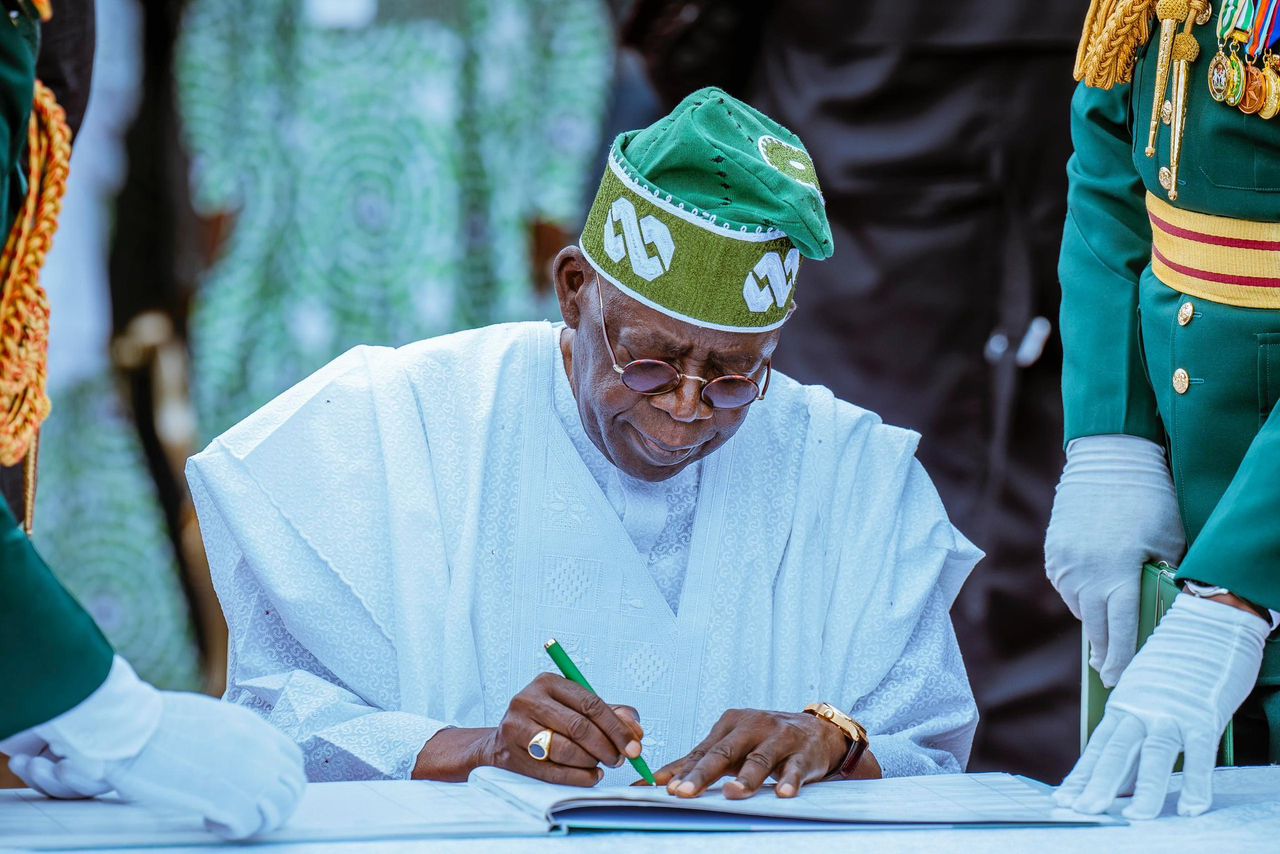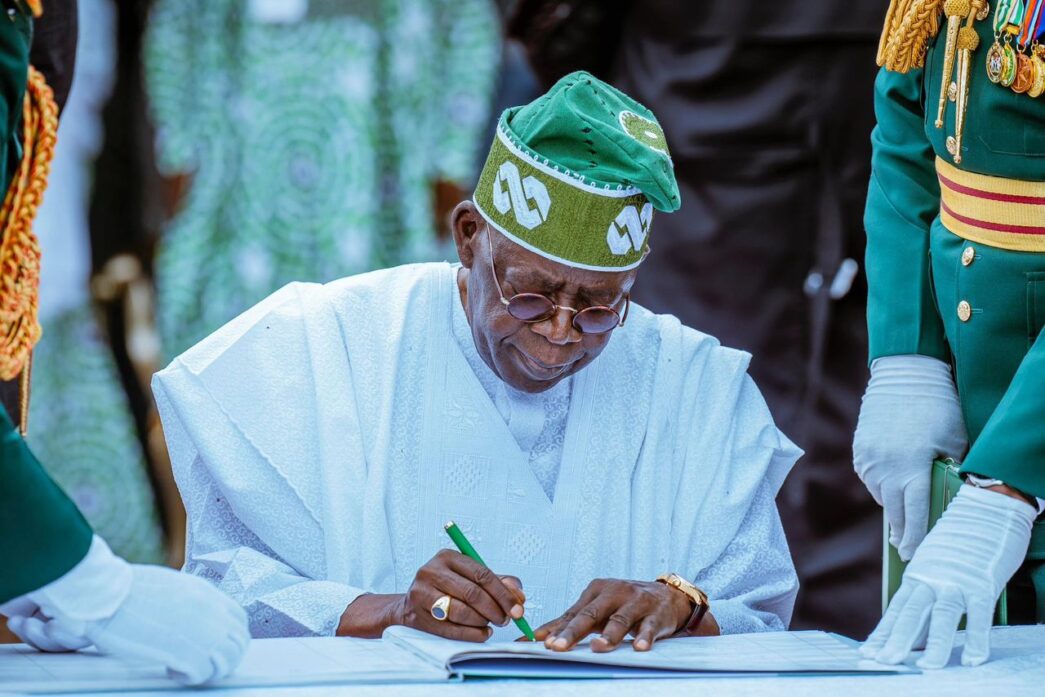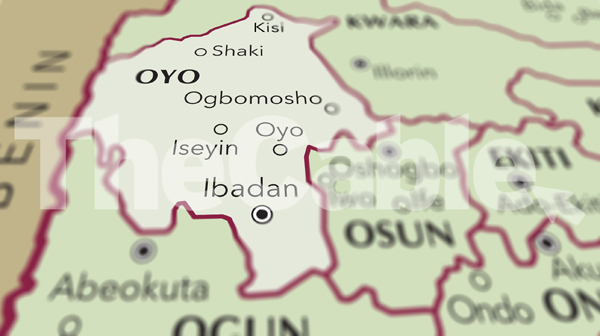President Bola Ahmed Tinubu
BY STEPHEN KLANZAMA
Professor Mahmood Yakubu’s sudden exit on October 7, 2025, as Chairman of the Independent National Electoral Commission (INEC), months before his tenure was due to end in December 2025, has paved the way for Mrs May Agbamuche-Mbu to step in as Acting Chair. With Yakubu’s departure, all eyes are now on President Bola Ahmed Tinubu, whose choice of a substantive successor will be seen as a defining test of his commitment to electoral integrity and democratic governance.
This appointment is considered crucial as it will not just be about filling a vacancy. It is one appointment that can shape public confidence in Nigeria’s electoral process for years to come. Citizens’ trust in electoral institutions is currently at a low ebb. In this regard, the president has an opportunity to restore credibility to INEC and reaffirm his commitment to democratic governance by choosing an INEC chairman who is, by all standards, a man or woman of integrity and unquestionable character.
In strong democracies, the appointment of election management body leaders rests on three broad pillars:
a) a statutory guarantee of independence,
b) an inclusive and transparent selection process,
c) and clear criteria based on professionalism, impartiality, and integrity.
These standards underscore why Nigeria must strive for a system where INEC’s leadership is chosen through an open, credible process that inspires public confidence.
Advertisement
The 1999 Constitution of the Federal Republic of Nigeria (as amended) confers the power on the President to appoint the INEC Chairman in consultation with the Council of State and subject to Senate confirmation. The eligibility criteria as contained in the Constitution under section 156 states that candidate(s) must be non-partisan and a person of unquestionable integrity, must not be a member of any political party and must not be less than 40 years. Furthermore, section 158 (1) clearly guarantees the independence of INEC as it stipulates that INEC “shall not be subject to the direction or control of any other authority or person.”
Whoever emerges as the next INEC Chairman must therefore be an individual of unquestionable integrity, competence, and neutrality; one who can command public confidence across party lines.
The 2023 general elections, despite some logistical improvements, did little to boost faith in INEC. The failure to upload presidential results to the INEC Result Viewing Portal (IReV) in real time sparked widespread controversy and damaged the Commission’s credibility. Although INEC cited “technical glitches,” many Nigerians saw it as evidence of institutional weakness or manipulation. Rebuilding that trust will require not only internal reforms but leadership that is both capable and independent. This is where President Tinubu’s next move becomes critical.
Advertisement
The appointment of a new INEC Chairman presents the President with an opportunity to demonstrate political maturity and statesmanship. In a democracy often accused of executive overreach, the President can set a new standard by ensuring that the process is transparent and inclusive. Choosing a non-partisan, respected figure could cement his legacy as a democrat who values institutional independence over political convenience. Anything short of this would likely reinforce public fears that INEC is merely an extension of the ruling party.
There is historical precedent for such leadership. In 2010, former President Goodluck Jonathan appointed Professor Attahiru Jega, a respected academic and unionist, following widespread criticism of his predecessor, Professor Maurice Iwu, whose tenure was marred by allegations of manipulation and poor election management.
Jega’s leadership marked a turning point for Nigeria’s electoral system. Under his watch, INEC introduced a range of significant reforms that strengthened transparency and public confidence. These included the introduction of the Permanent Voter Card (PVC) and the Smart Card Reader, which reduced multiple voting and underage registration, and the creation of an inter-agency consultative committee on election security (ICCES) to enhance coordination with security agencies.
These reforms laid the foundation for the 2015 general elections, widely regarded as one of Nigeria’s freest and fairest. Jonathan’s subsequent decision to concede defeat to the opposition candidate, Muhammadu Buhari, was widely viewed as a rare display of democratic maturity and helped strengthen Nigeria’s reputation for peaceful political transition.
Advertisement
One of the important reforms under Professor Mahmood Yakubu’s tenure as INEC Chairman is the introduction of INEC Result Viewing Portal (IReV). Launched in 2020, iReV was a major step towards public transparency in election result management. Among other things, the innovation gave the public immediate access to Polling Units results.
The next INEC Chairman must be someone who can lead reforms, protect the Commission’s autonomy, and strengthen technological transparency in future elections.
President Tinubu has often described himself as a democrat who was shaped by the struggle for Nigeria’s return to civilian rule. His choice of the next INEC Chair can either affirm or undermine that legacy.
While the Council of State has an advisory role to play in this appointment, the Senate bears the greater responsibility of conducting a thorough scrutiny of the appointee. Appointing a credible, non-partisan INEC Chairman can send a powerful message that the President is committed to safeguarding Nigeria’s democracy. Such a move would not only redeem INEC’s image but also strengthen the foundations of free and fair elections.
Advertisement
This is a defining moment for the President and for Nigeria’s democracy. History will remember whether President Tinubu chose to consolidate power or to build trust in the ballot box.
Klanzama can be reached via [email protected]
Advertisement
Views expressed by contributors are strictly personal and not of TheCable.




